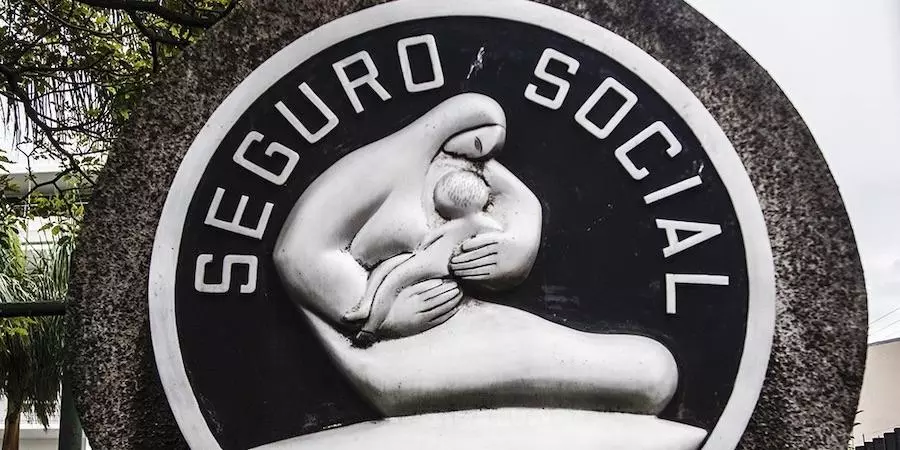Costa Rica is well known for its democratic system. Our country is considered as one of the most solid political systems and example of democracy for the rest of the region. This is not something new, as the country has been practicing this type of political system since the 19th century, however, considering that Costa Rica is a relatively new nation, until this day, our social system is still in the works, with new regulations and constant changes to adapt to a society that moves faster than the system can take.
Nevertheless, our democracy has been protected and safeguarded over time, surviving to civil wars, economic crisis, and many other challenges over the last century. Including, our Social Security System, which we take pride of as Costa Ricans.
The “Caja Costarricense del Seguro Social” or CAJA as it is known, is the Costa Rican Social Security, which is available to nationals, residents and even tourists. This institution has been active since the beginning of 1940. This is the first article of a series of three on which we will explore in deep what is the Caja and what this means to future and existing residents in Costa Rica. We will explore the history of the Caja, its benefits and the implications for the resident’s community.
It was the beginning of the 1940, when Dr. Rafael Calderón Guardia, president of Costa Rica, introduced the idea of establishing a form of Social Security system in our country. Without a precedent, Dr. Calderón Guardia sent to the congress a bill to create a Social Security, on his words, this marked a huge development of our democratic system, being an instrument for peace for future generations and our relations with our country neighbors. However, this was completely unknown not just to the Costa Rican society, but to the political organization of the time. Considering this, the President sent a member of this cabinet, the Dr. Guillermo Padilla Castro to visit Chile to understand the process and application.
In 1924, Chile became the first country in Latin America that created a Social Security System that protected the employees and provided to their people the possibility to receive a pension and health care services provided by the Government. After the visit to Chile, in July of 1941, Dr. Padilla Castro came back with a proposal to the congress that was based on the legislation from Chile with the adjustments required for our country. In November of the same year, the Congress approved and published the Law number 17 that created the Caja Costarricense del Seguro Social. At the very beginning, this system only covered direct employees, without including other members of the family (spouses, children), it was not even mandatory for employers. It was until September of 1942, that the Law made mandatory for all employers to enroll every single employee into the Caja system and pay the corresponding contributions.
However, not everything has been as easy at is seems, when the Caja was becoming stable and firm, the continuity and integrity of this institution was on the edge when our country experienced a Civil War in 1948 and suffered of a coup d'état where two political parties were fighting over the control of the Government. During this year, all the health services and employees went on a strike not knowing the future of the Social Security in Costa Rica. Fortunately, the institution survived and become stronger during the years.
In 1949, after the end of the Civil War in Costa Rica, the government amended the regulation and the Political Constitution to assure the protection and support from the future governments to provide continuity and maintain all the benefits for future generations. As of today, many rumors are heard about the Caja, from long waiting lists to receive medical attention to the possibility of a bankruptcy. Despite the above, not all is truth and must of the challenges Caja faces everyday are due to disorganization within the Government and bad political decisions.
From a Costa Rican national perspective, Caja is part of our culture and lifestyle, not just because we grow up enjoying of the benefits, but because we cannot imagine a life where we must afford our own health care system. To summarize, Caja is not just a medical and eventually retirement provider, is a democratic security system that provides people with a government-supported programs to face basic humans’ rights related to the integral wellbeing of human beings, from different points:
- Special protection for children: every child from 0 to 18 years of age, born in or out of Costa Rica are protected by the Caja without any fee. This includes all medical services and obligatory vaccination scheme.
- Special protection for pregnant women: same as the child protection, all pregnant women are protected by the Caja government during the entire pregnancy period and the post-partum process.
- Retirement program: every worker in Costa Rican must be duly enroll with the Caja system, both the employer and the employees are required to contribute to this program plus a percentage that is provided by the Government.
- d) Free health care services: every person that is registered with the Social Security, is entitle of receiving free health care services.
Another crucial part of the Caja and the proud that we take as Costa Ricans is the fact our country is always looking for new and innovative ways of updating the health care services, a recent example of this was the COVID-19 pandemic. The whole world stopped for months not knowing the future of humanity, while everything was uncertain, the CAJA made a commitment with the people to take all the necessary actions to prevent and control the spread of the disease. Finally, the country was able to provide to all the population, even the most remote areas, the vaccinations and treatment required to make our territory safe again.
Our Social Security system is and will be one of the fundamental pillars of our democracy. In Zurcher, Odio & Raven, we are committed to provide with relevant fundamental information to make your residency journey as simple as possible.
If you have any questions related to the CAJA or any other Immigration matter, feel free to reach us to: This email address is being protected from spambots. You need JavaScript enabled to view it.
Related Practice Areas:


